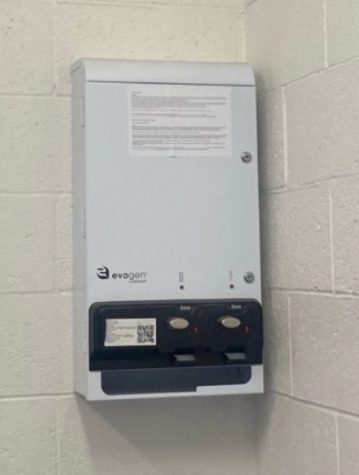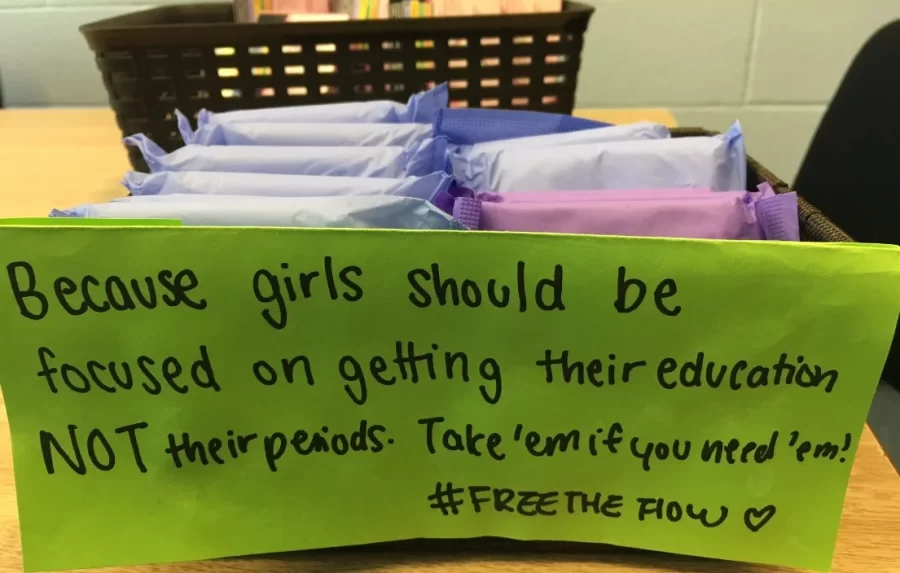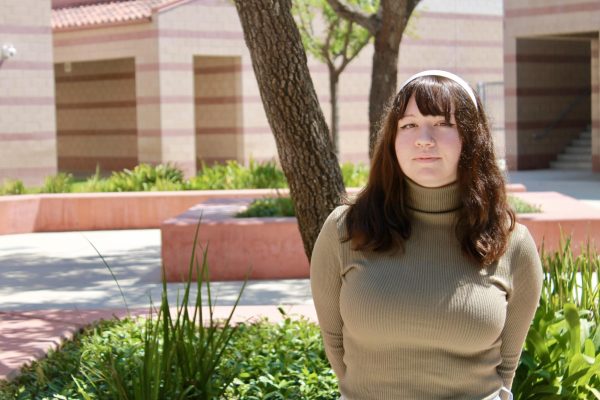The Horrifying Side of High School for People with Periods
A free period product basket inside a London public school, a case of ‘menstrual equity’. Image from London Central Secondary School on Twitter,
March 21, 2023
Some humans have periods, this is a part of life for them that they cannot avoid. But how does high school treat periods and the people who have them poorly?
As many AFAB people know, period symptoms are horribly painful experiences, or just plain embarrassing (such as breaking out, uncontrollable bloating, skin texture changing, etc.). Certain activities are made much harder during your period as well, and many of those activities are required at school, and you may even get trouble for doing it ‘wrong.’
If you need a menstrual product, you have to go to the nurse and receive a tiny pad or tampon. The size and quality of the products school provides may not work for people with heavier periods, rendering them practically useless. Not to mention, starting your period in class and having to ask to go to the nurse for a pad is a horribly mortifying experience, especially for transgender students.
The school has pad/tampon dispensers in the girls’ restrooms, but they are often not refilled, and sometimes have trash cans in front of them so students have to go the extra mile to move the trashcan before trying to use the dispensers.

Many students are in PE classes, which can suck in tons of different ways. Some PE teachers may not take menstrual pain seriously, especially the male teachers, causing some students to practically be forced to do physical activity that can cause their pain and cramps to worsen.
As for absences, students can only have a specific amount of absences until the school will punish them or investigate their living situations. This directly affects students who menstruate, as it prevents them from staying home whenever they’re in pain or didn’t get the amount of sleep they need (which is more than AMAB people because of the hormonal cycle differences between both sexes), and also causes their academic success to be affected since they may not be able to fully focus or put in full effort as a result of their symptoms.
When interviewed, openly non-binary student Jasper Braun, and freshman at La Sierra High, stated “High school is hard enough for trans kids already, but being on your period makes it so much worse. Having to ask for a tampon is humiliating and the dysphoria [from being on my period] is already awful, but I can’t stay home or I’ll be behind. I’m learning to deal with it.”
Orange Grove senior Sienna Castillo explained, “I hate that they don’t refill the dispensers at my school, and some of my friends’ schools make you pay to use them, almost a dollar for a crappy pad that doesn’t even work! Not only do you have to worry about where to find a pad or tampon, but you have to worry about leaking. How are you meant to deal with that after its happened?”
Many schools actively cause menstruation to be an even more uncomfortable process than it already is, while also making their school environment feel inconvenient and uncomfortable for students with periods.
How can public schools improve their system and how they treat students with periods? Well, students can file complaints about their school system to their district office or school admins through email, or anonymous paper complaints in some cases. If you have a period and struggle with how your school treats it, don’t be afraid to speak out and bring attention to this issue at school board and student meetings. Some resources for great organizations are listed here.


